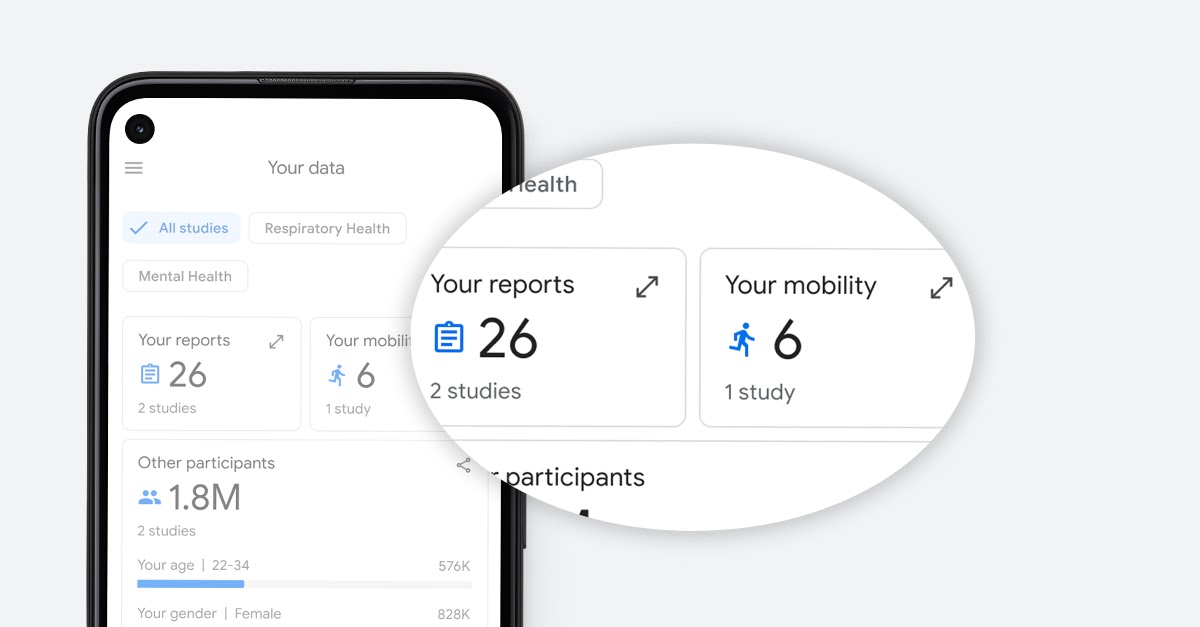
Google rolled out its first Health Studies app. To start, it will offer a study on respiratory illness in conjunction with Harvard Medical School and Boston Children’s Hospital. Photo credit: Google
Apple and Google may have teamed up to build a framework for Covid-19 contact tracing apps. But in their other health endeavors, the rivalry is still very much alive.
On Wednesday, Google rolled out a new research app that would be used to connect people with virtual studies. Apple started offering virtual studies in 2017, many of which have focused on heart health and mobility, using data collected from its Apple Watch.
Google is taking a different approach for its Health Studies app. The tech giant is partnering with researchers at Harvard Medical School and Boston Children’s Hospital to take a closer look at respiratory health, including influenza and Covid-19.
The idea behind the study was to better understand how respiratory illnesses are transmitted, Dr. John Brownstein, a professor at Harvard Medical School and Chief Innovation Officer of Boston Children’s Hospital, said in a media briefing.
“Those things are really tough to study in understanding the spread at a hyper-local level,” he said, adding that his team tried running surveys to get more information on this. “We get maybe zip-code level data, but we don’t get details on user behavior and location. We don’t get detailed demographic data. And certainly, we don’t get the level of testing information. But more importantly we don’t have data on the specific locations and settings in which people are moving.”
Participants will be asked to regularly report how they feel, any symptoms they’re experiencing, as well as Covid-19 or influenza test results. The study will also collect demographic information, including participants’ income, race/ethnicity, previous health conditions, occupation, work address and home address. The goal is to enroll 100,000 people to participate in the study for at least six months.
Of course, sharing one’s test results, or location, is very personal. In a blog post, Google Health Product Manager Jon Morgan and Google Research Engineering Director Paul Eastham emphasized that users’ data will not be sold or shared with advertisers.
The study uses federated learning and analytics, which allows users’ data to stay on their devices while giving researchers aggregate information from multiple devices.
Through the app, users can keep track of what data they are sharing with each study, and cumulative findings will also be shared with participants. For example, participants could see how they compare to people with similar mobility levels or in similar locations, Brownstein said.
Currently, the app is only available to Android users in the U.S., and only in English. In the future, Google said it plans to make it available in more languages and locations.
Fitbit, which Google is looking to acquire, is also evaluating whether its wearables could be used to detect viral respiratory illnesses. In its most recent study, published in Nature, it collected participants’ self-reported symptoms as well as information on their sleep, resting heart rate and activity levels.










